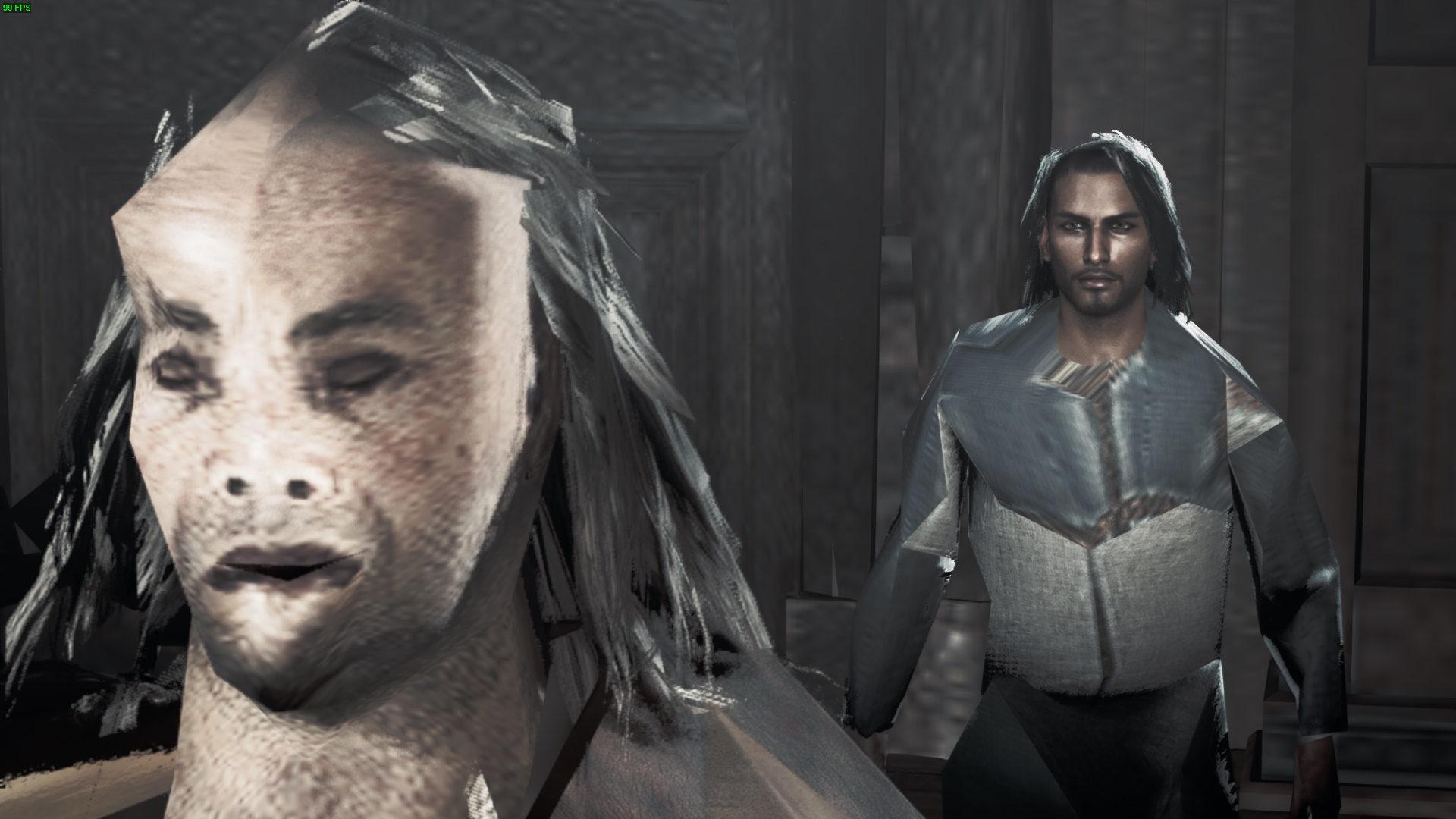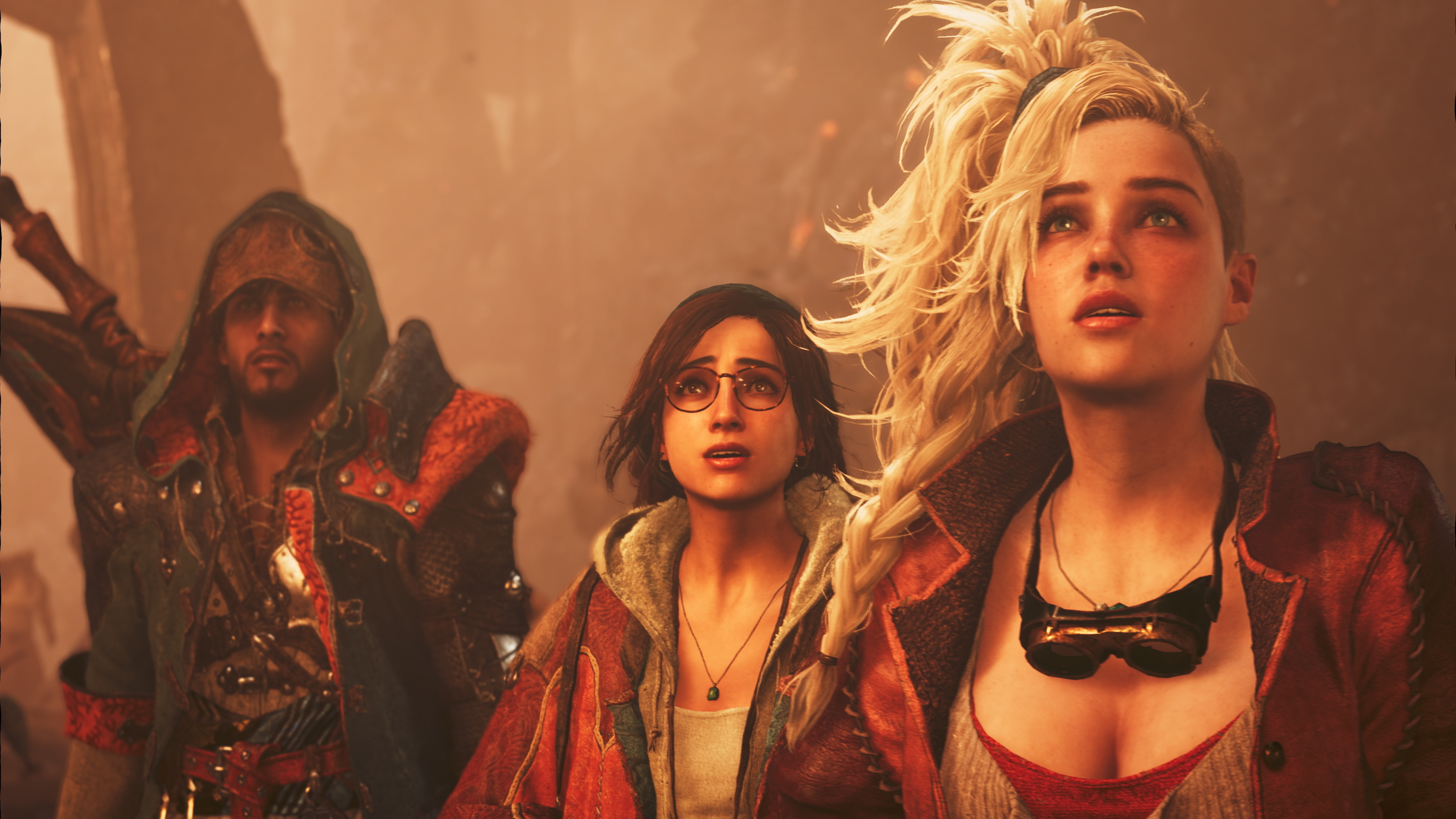As Monster Hunter Wilds PC players fight horrible polygons and struggle to hit 60 FPS, Capcom says the game is "already in a more improved state compared to the beta"
The Monster Hunter Wilds PC beta test can give even moderately old PCs some trouble

The Monster Hunter Wilds beta has officially opened on all platforms, and some PC players have found the game's performance to be the true monster.
This comes as no great surprise given the terrifying Monster Hunter Wilds system requirements that Capcom previously released, though I didn't have nightmarish texture-breaking models on my bingo card. The good news is that this nightmare seems to be bug- and not performance-related, and Capcom says the full game is already in better shape, plus it has some decent troubleshooting options for struggling players.
"The issue of afterimage noise occurring in certain environments when Frame Generation is enabled will be fixed in the full game, which is already in a more improved state compared to the beta test," the official Monster Hunter Twitter account says, linking to a list of workarounds and known issues for Steam players.
There's also a much more in-depth post outlining some common troubleshooting options step-by-step. Standouts include adding the game to anti-virus exceptions, giving it and Steam admin privileges, updating your graphics drivers or operating system or DirectX, and verifying the game's Steam cache.
A few other specific solutions are also worth noting. "If you are experiencing issues with game stability, delete your shader cache files," Capcom advises. Much less helpfully, "if you are experiencing crashes caused by insufficient VRAM while performing shader warming, please contact Intel Corporation or the PC vendor." More helpfully, Capcom adds that "if Frame Generation option is grayed out and cannot be enabled, please turn on 'GPU scheduling.'"
Speaking of frame generation: "When using NVIDIA DLSS and repeatedly changing the Upscaling Mode, VRAM usage may increase, causing the framerate to drop or the game to crash on certain PCs. If this happens, please restart the game." Turn it off and turn it back on is a classic PC gaming fix, but with how many DLSS and VRAM reports I'm seeing on forums, this feels worth mentioning.
Finally, Capcom addresses the players who've said the beta won't even start. "If this is not resolved by updating your graphics card driver to the latest version, please try a clean reinstallation of the driver," it advises.
Sign up to the GamesRadar+ Newsletter
Weekly digests, tales from the communities you love, and more

This comes alongside wide-ranging reports of performance issues, from graphical hitches to framerate woes, and let's not forget the Nintendo 64 polygons. Data is scattered and anecdotal at the moment, but multiple threads across Reddit and Steam forums suggest that many players can't reliably maintain or even hit 60 FPS at 1080p or 1440p on any settings if their PC is even slightly outdated.
There seems to be a huge reliance on frame gen and upscaling to even get by, which is quickly becoming the norm for taxing PC releases. By and large, the reports of 60+ FPS that I've seen have come from users with an RTX 3080 or 4070 GPU or equivalent. Your CPU may also be a severe limiting factor, just as it was in Monster Hunter World. The frequent weather effects in Monster Hunter Wilds appear to be especially top-heavy.
I've personally been hovering around 40 - 50 FPS on medium-low settings at 1440p with DLSS set to performance, but I recognize that my PC ain't no spring chicken with a 2080 Super, Intel i7 9700k, and 16GB of RAM. After five years of faithful service, I was already eyeing this year's Black Friday gaming deals for a new PC build after games like Baldur's Gate 3 and Space Marine 2 pushed mine to its limits. Wilds is only plunging me deeper into the abyss that is building your dream PC in a shopping cart, one "if it's discounted enough" at a time
Beta builds are always outdated and Capcom still has four months to optimize the game, so there's no reason to sound the alarm just yet. Monster Hunter World chugged at launch but perked up quite a bit after a few patches, though good performance at launch should be the expectation. Monster Hunter Rise, the series' most recent release, ran pretty perfectly on PC from the get-go, but it notably started as a less demanding Nintendo Switch game (which ran poorly on Switch, for the record).
Just as it did with Monster Hunter World, we can safely expect Capcom to host a second beta test in December or January, and that should give us a better idea of where the game stands. For the time being, follow the troubleshooting advice above where applicable, fill out the beta feedback survey, and make sure that lowering some graphics settings actually improves your framerate before cranking everything down. You may find that some added details don't actually hurt your FPS, so a less-ugly experience may be feasible.

Austin has been a game journalist for 12 years, having freelanced for the likes of PC Gamer, Eurogamer, IGN, Sports Illustrated, and more while finishing his journalism degree. He's been with GamesRadar+ since 2019. They've yet to realize his position is a cover for his career-spanning Destiny column, and he's kept the ruse going with a lot of news and the occasional feature, all while playing as many roguelikes as possible.


